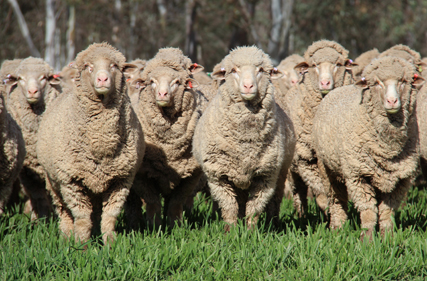
ASBVs provide breeders an estimate of the genetic potential a ram or ewe will pass on to its progeny for a range of economically important traits.
DNA Parentage testing of progeny from multiple sire mating groups significantly improves the accuracy of breeding values associated with their bloodlines, a new trial has found.
A genomic validation trial conducted in conjunction with Australian Wool Innovation, Sally Martin Consulting, Moses & Son, and Bluechip Livestock, used Sheep CRC DNA tests to identify parentage of the progeny of 300 ewes that had been joined in a syndicate mating program and found huge variation in the number of progeny sired by each ram.
Rather than an even spread of offspring per sire, the number of progeny per sire ranged from 4 up to 30 percent, with the dominant ram varying from year to year.
“Similar results were recorded in an AI backup program, with a range of progeny per syndicate sire from 1 to 58 percent,” Ms Martin said.
“This variation in the number of progeny per sire helps to explain the reason why Sheep Genetics adjusts results from syndicate sire groups compared to single sire matings when calculating Australian Sheep Breeding Values (ASBVs).”
ASBVs provide breeders an estimate of the genetic potential a ram or ewe will pass on to its progeny for a range of economically important traits. ASBVs account for the environmental effects, allowing the comparison of sheep based on the genes they will pass on to their progeny.
Ms Martin said variation in parentage even extended to twins, where the results of DNA Parentage testing showed that on average 50 percent of twins were half-siblings (i.e. the same dam but different sire).
“DNA Parentage provides a great opportunity to account for the variability in the number of progeny per ram by providing accurate pedigree data, and this in turn improves the accuracy of the ASBVs,” she said.
The DNA Parentage test provided by the Cooperative Research Centre for Sheep Industry Innovation (Sheep CRC), can be used either for ‘full pedigree’ – that is linking a lamb to its ewe and sire – or breeders may choose to only link the lambs with their sires.
To use the test, breeders need to collect either blood or tissue samples from all of the animals that need to be matched up.
